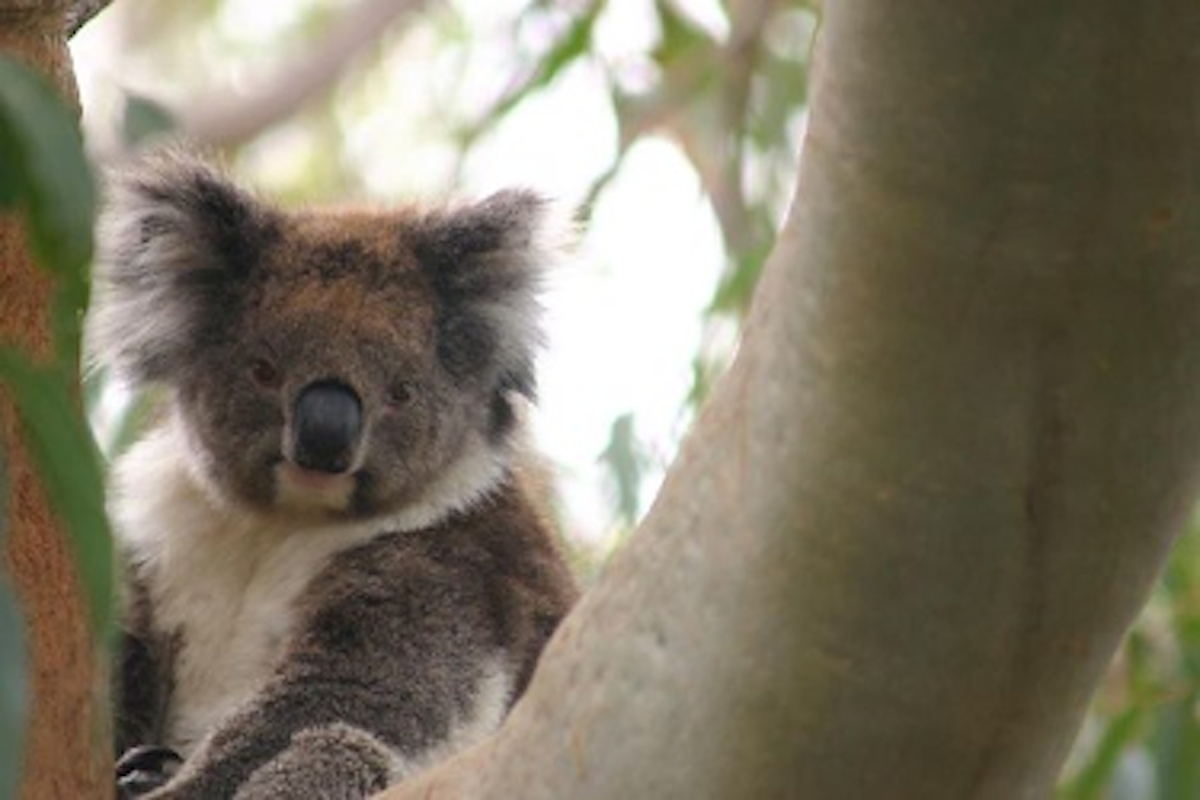“Koala” by Obliot is marked with CC BY 2.0.
By Caroline Sabater
Caroline is an aspiring writer and is probably procrastinating right now.
From chlamydia to bushfires, koalas are having a tough go at it. The Australian Government has recently declared koalas as an endangered species throughout the east. This is devastating news, especially given they were only considered as vulnerable species back in 2012.
By identifying the koala population as endangered, the government has a more urgent obligation to mitigate the decline. However, the continued existence and health of an entire species should not have to be left to the point of tittering on extinction for governments to act.
The Morrison government has promised a $50 million package to reduce the declination. However, chucking money cannot solve the problem without recognising and targeting the core issues contributing to the decline of koalas.
Koalas are a fixture of Australian wildlife and pride. With their bear-like cuddly looks, sleepy disposition, and diet of eucalyptus leaves, the koala is much beloved both at home and around the world.

“Koala” by jcoterhals is marked with CC BY-NC-ND 2.0.
Why the decline?
The major threat to Koalas is loss of habitat due to clearing for urbanisation. With less bush to occupy, koalas are forced to move through built-up areas. This is where they are further exposed to the dangers of human habitation. They can be hit by cars, attacked by dogs, or accidently drown in a backyard pool.
With less natural habitat in which to live, eat, and sleep, koalas are also exposed to a loss of food and security. All of these elements combined cause a high level of stress in koalas. As we know, stress isn’t healthy for any living creature, often resulting in a deterioration of health.
Excessive stress is known to cause chlamydia outbreaks in koalas. This bacterial infection is proving to be a major contributor towards the disappearance of the species. Chlamydia in koalas causes a range of problems. It can weaken their already compromised immune system. Cause blindness, leading to fatal situations like being hit by cars. Most importantly, chlamydia affects the reproductive system of females, leading to infertility.
With a decline in birth, and loss of habitat, the listing of koalas as endangered shouldn’t come as a surprise.
A New South Wales parliament inquiry led to the conclusion that by 2050 koalas will be lost, gone, extinct. This is well within our lifetime.

“koala” by Mathias Appel is marked with CC0 1.0.
What now?
We may understand the problem, but what is being done about it? The New South Wales Government has implemented a Koala Strategy to conserve habitats. Currently, the Environment Protection and Biodiversity Conservation Amendment (Save the Koala) Bill 2021 is being considered by the Senate. This Bill seeks to amend the Environment Protection and Biodiversity Act 1999, by placing a moratorium on koala habitat clearing. Koala and environmental organisations have strongly supported the Bill, including the full endorsement from the Environmental Defenders Office.
But what can Western Australians do?
Here in Western Australia, we do not have a native koala population. But that doesn’t mean you can’t help out. Even though I said throwing money at koalas will not help unless the root causes are targeted, that criticism was reserved for governments.
By donating to organisations like the Environment Defenders Office, the Australian Koala Foundation, and the Koala Hospital Port Macquarie, the conservation and care for koalas can continue. Donations can be made by adopting a koala, which helps treat sick or injured koalas. You can also ‘plant a tree’, which will provide shelter and food.
These may seem like small efforts, but they add up. Any amount of help, even just supporting these organisations online, can go a long way. Koalas are more than just an iconic Australian creature. They are a unique species that is vital to the health of all wildlife.

